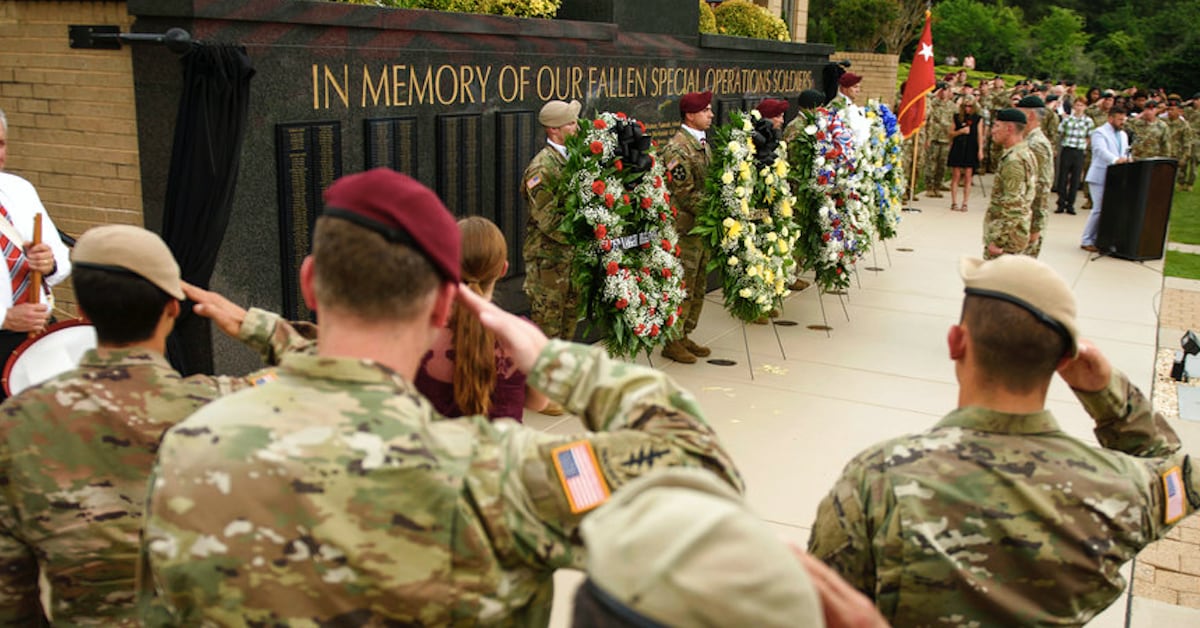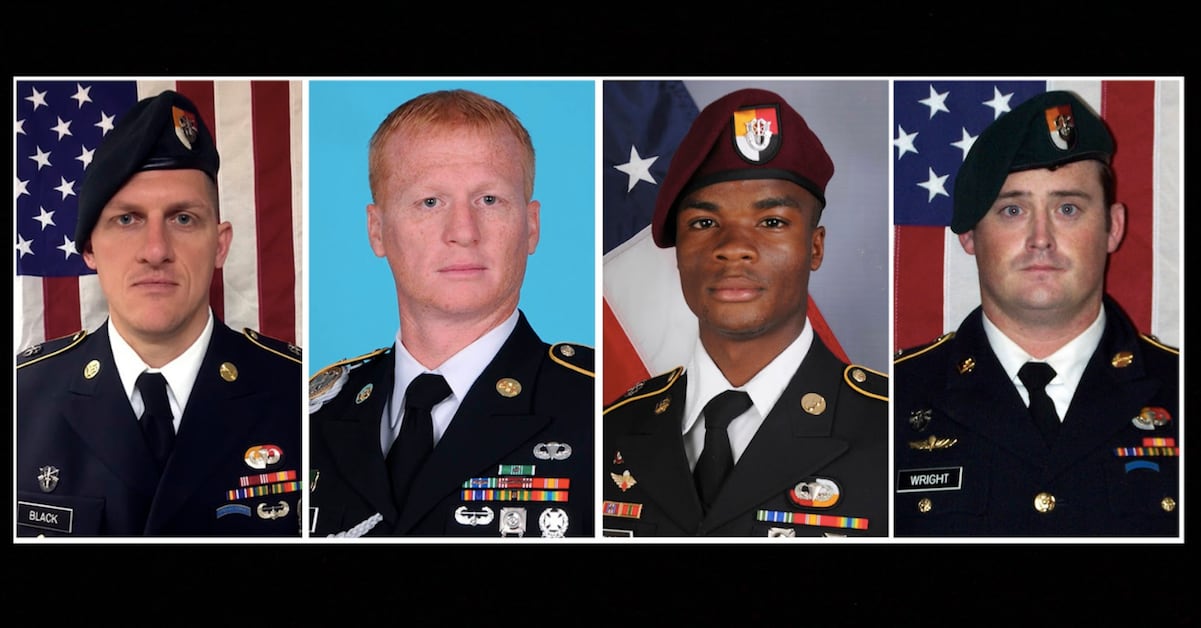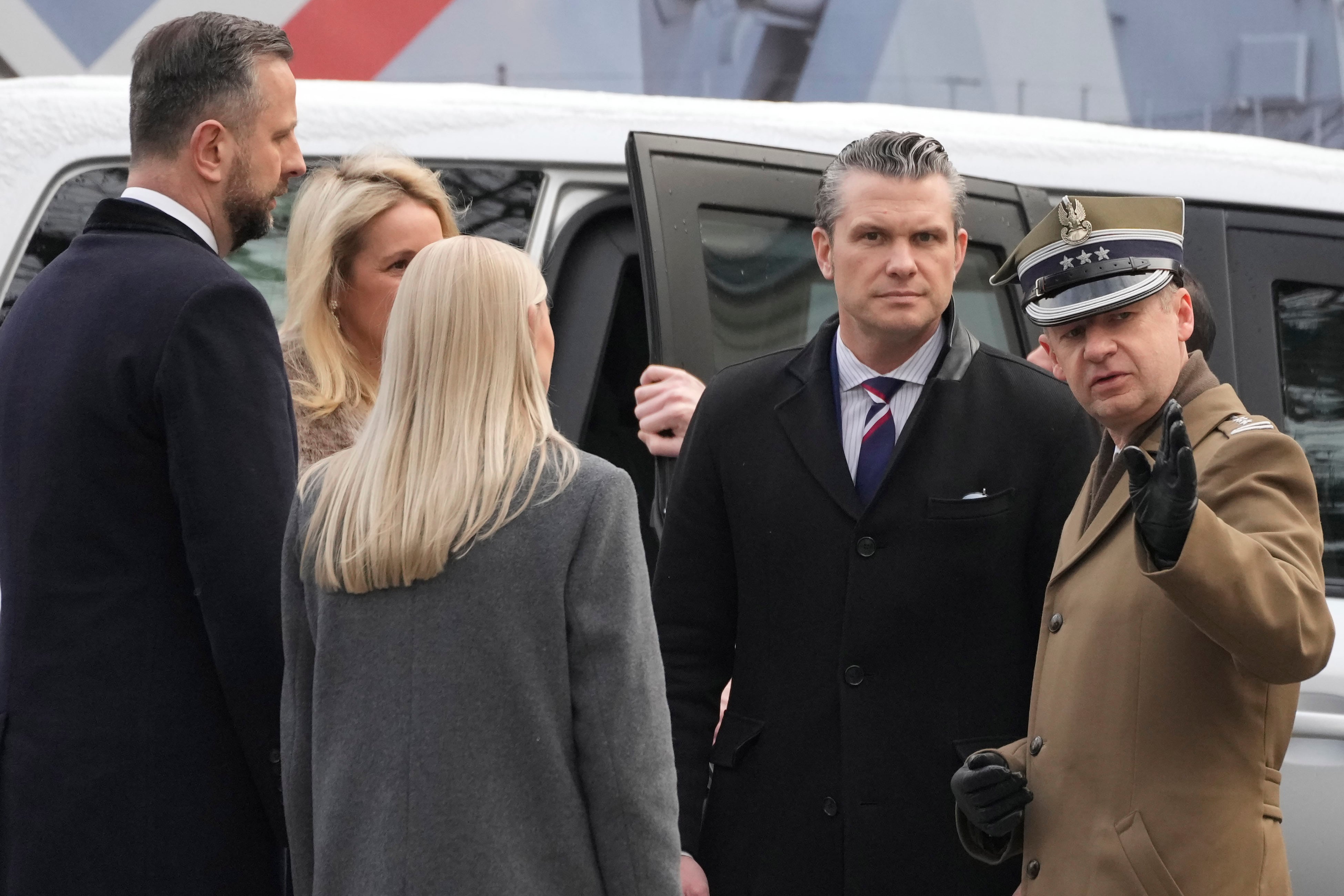The father of Staff Sgt. Bryan Black, an Army Green Beret killed in the October 2017 Niger ambush, has authored a letter asking the Army not to punish the Special Forces captain who led the mission.
Hank Black, a retired Marine Corps major, asked that his son’s commanding officer, Capt. Mike Perozeni, be spared a General Officer Memorandum of Reprimand, or GOMOR, for his conduct prior to the mission.
"I urge you to not file the GOMOR, which, in all likelihood, would end Captain Perozeni’s Army career,” Black wrote in a letter to Maj. Gen. Edwin Deedrick Jr., the commanding officer of First Special Forces Command, who administered the letters of reprimand.
A full copy of the letter was published in The New York Times on Wednesday.
GOMORs are written criticisms given to a soldier for failing to comply with established standards. These letters of reprimand have varying degrees of effect on a service member’s career. A permanent reprimand will stay with a troop throughout their time in the service, while less severe reprimands disappear when a soldier switches jobs.
It isn’t immediately clear which type of reprimand Perozeni will reportedly receive. U.S. Special Operations Command officials referred Army Times to the Office of the Secretary of Defense for questions. However, OSD did not immediately respond to a request for comment.
Perozeni was one of six troops punished not for the ambush but for the poor training and mission planning that the investigation into the incident found occurred beforehand.
A 6,300-page investigation detailed by the Pentagon in May said that the mistakes leading up to the ambush were widespread. An unclassified eight-page summary was released for public viewing.
One of the others punished was Air Force Maj. Gen. Marcus Hicks, who was the commander of all special operations troops in Africa. Three others in the team’s chain of command also were reprimanded, according to The New York Times' report earlier this month.
In his letter, Black focuses on Perozeni. The two have spoken a number of times since the ambush that took Black’s son, he wrote.
A few days after his son was killed, Black and his daughter-in-law were visited by an Army officer who offered condolences and provided information to the family about the incident.

“He revealed how the team was left on its own for an extended period of time after the attack began, and even longer before kinetic help was available,” Black wrote in his letter. “After the visit ended, I walked outside with the officer and away from Michelle’s earshot, and asked: ‘I mean no disrespect when I ask this question, but why the [expletive] was Bryan’s team sent out without support?’”
One of U.S. Africa Command’s changes following the ambush was to arm drones in Niger and to make air support more readily available. Prior to the ambush, troops only had access to unarmed drones for overwatch.
Black said that the support and intelligence available to his son’s Green Beret team, known as Operational Detachment Alpha 3212, was “profoundly inadequate.”
“In particular, I view the failure of intelligence to paint an accurate picture of the threats in ODA 3212’s operating area as the key factor in undercutting the team’s ability to train to meet those threats," he added.
Black indicated he was writing the letter because he knew Perozeni was too professional to voice discontent with the situation.
“In my opinion, the Army failed Captain Perozeni when it ordered him to execute a mission that he pushed back against; it failed Captain Perozeni when intelligence did not identify the high-threat environment in the operating area, which truncated the ability of ODA 3212 to adequately prepare; and it failed Captain Perozeni when it ordered ODA 3212 to execute a mission without adequate support and resources," Black wrote. “I hope the Army will not fail him again by filing the GOMOR.”
Kyle Rempfer was an editor and reporter who has covered combat operations, criminal cases, foreign military assistance and training accidents. Before entering journalism, Kyle served in U.S. Air Force Special Tactics and deployed in 2014 to Paktika Province, Afghanistan, and Baghdad, Iraq.





